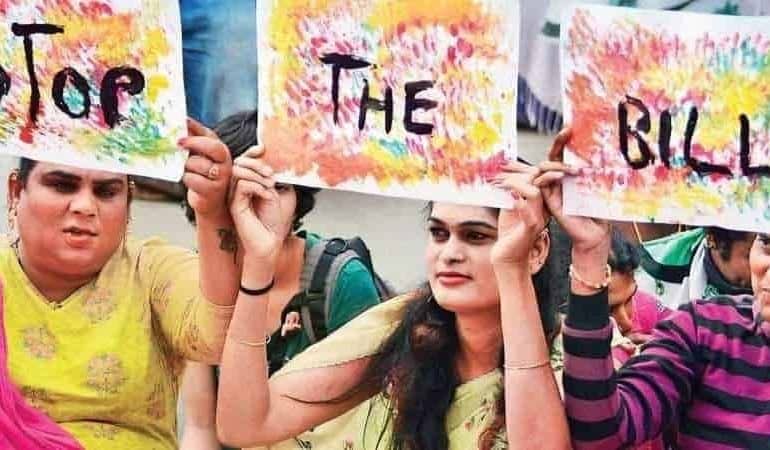The Transgender Persons (Protection of Rights) Bill was passed in the Lok Sabha on 5th August 2019. However, has the negative and ambiguous aspects of the bill really been addressed by the public?
The Transgender Persons (Protection of Rights) Bill mandates a two step method for legal recognition of gender for someone from the transgender community. They will first have to apply for a “transgender certificate”, after which they will also have to apply for a “change in gender” certificate, which will get their gender status changed legally. This step seems to require surgery and documentation by a medical authority confirming it. Medical confirmation and surgery was not and should not be a necessary prerequisite for a change in legal gender, as per a 2015 report by the World Health Organisation and the Asia-Pacific Transgender Network, the Governments should “take all necessary legislative, administrative, and other measures to fully recognize each person’s self defined gender identity, with no medical requirements or discrimination on any grounds.”
Furthermore, one of the main clauses of the bill basically says that in cases of acts of sexual, verbal, physical, economic, and emotional abuse against transgender peoples, the penalty will be between 6 months and 2 years and with fine. However, those who perpetrate the same crimes against cis-gendered people have much harsher punishments put in place against them. Essentially, this clause is making a very negative impact on an already marginalized community.
Harish Iyer, a gender-rights activist told IndiaSpend, that the “transgender bill is regressive and half-hearted.” He added that pivotal hardship is that one has to go to a committee or a doctor to get recognized as a trans-person and undergo questioning related to their genitalia which any cis-person would never have to go through.
Prachi Johri, a second-year student from Indraprastha College for Women, when asked for her opinion on the Bill, said that “Going back to the 2016 transgender rights bill where the bill defined transgender individual as “neither wholly female or male” to the 2019 version of the bill, it still efficiently renders transgender people as second class citizens by providing penal provisions for crimes committed against the transgender community less stringent compared to the crimes committed against women and by failing to keep in place a progressive certification process for transgender.” She also believes that the bill was also suppressed by the removal of article 370. According to her, it was covered and hidden from the masses and media, so, only a few people know about it and are protesting or questioning about it. It was an easy bill to pass for the government.
Esvi Anbu Kothazam, a Mumbai-based transgender spoke with The Print and stated, “What is being done is that the government is trying to legislate without taking into consideration the history of marginalisation and discrimination which the transgender community has faced.” Esvi also noted the absence of any provision for affirmative action. “The main point is that we need a comprehensive reservation policy — in education, employment and political representation, which addresses the needs of all sections of the transgender community,”
The ambiguity of this bill and its clauses makes one question the motive of the government and how it is going to work towards the protection of this community. Furthermore, it is clear that this Bill has many flaws which haven’t been addressed in the political or the public sphere as they should have been.
Feature Image Credits: Feminism In India
Prabhanu Kumar Das





Comments are closed.